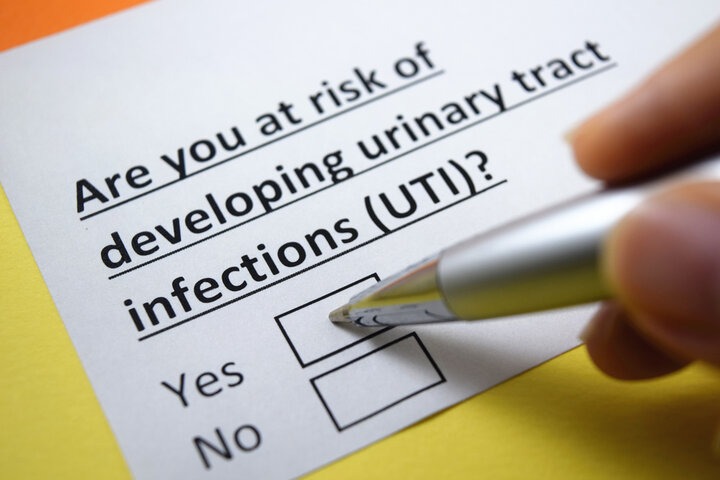Urinary Tract Infections
Learn about Urinary Tract Infections (UTIs), including their causes, symptoms, risk factors, prevention tips, and treatment options. Stay informed and protect your urinary health!


Urinary Tract Infections
A UTI is an infection that affects any part of the urinary system, including the kidneys, bladder, ureters, and urethra. These infections typically occur when bacteria enter the urinary tract and multiply. The majority of UTIs affect the bladder (cystitis) and the urethra (urethritis), causing irritation and discomfort. If left untreated, they can spread to the kidneys and lead to severe complications.
Urinary Tract Infections (UTIs) are one of the most common bacterial infections affecting millions of people worldwide. They can cause discomfort and, if left untreated, may lead to serious complications. This blog will cover everything you need to know about UTIs, including their causes, symptoms, and prevention methods.
Symptoms of UTIs
Symptoms of UTIs can vary depending on the severity and location of the infection. The most common symptoms include
Frequent urge to urinate: A constant feeling of needing to urinate, even when little urine is passed.
Burning sensation while urinating: A sharp, painful sensation that occurs due to irritation in the urinary tract.
Cloudy or strong-smelling urine: The presence of bacteria can cause urine to appear murky and have an unusual odor.
Pelvic pain (in women): Women may experience pain or pressure in the lower abdomen or pelvis.
Blood in urine: Hematuria, or blood in urine, can occur when the infection causes inflammation in the urinary tract.
Fever and chills: In severe cases, especially when the kidneys are affected, fever and chills may develop.


Treatment of UTIs
Mild UTIs can sometimes resolve on their own, but antibiotics are usually required for a full recovery. Common treatments include:
Prescription antibiotics: These help eliminate bacterial infections and should be taken as directed by a doctor.
Pain relievers: Medications like ibuprofen or acetaminophen can help ease pain and discomfort.
Home remedies: Drinking cranberry juice may help prevent bacteria from adhering to the urinary tract walls, though it is not a substitute for medical treatment.
Seek medical attention if you experience severe symptoms such as high fever, persistent pain, nausea, or vomiting. These symptoms may indicate that the infection has spread to the kidneys. If symptoms persist or frequently return, a doctor can provide appropriate diagnosis and treatment. Pregnant women and individuals with weakened immune systems should be especially cautious, as UTIs can pose significant health risks for them.


Causes of UTIs
UTIs are primarily caused by bacteria, with Escherichia coli (E. coli) being the most common culprit. Other causes include:
Poor personal hygiene: Not maintaining proper hygiene can allow bacteria from the anal region to enter the urethra, increasing the risk of infection. This can happen due to improper wiping techniques, infrequent washing, or using contaminated surfaces. Practicing good hygiene, such as washing hands and genital areas regularly, can help prevent UTIs.
Holding urine for too long: When urine remains in the bladder for an extended period, it creates a breeding ground for bacteria to multiply. This increases the risk of infection as stagnant urine allows harmful microbes to thrive. Frequent urination helps flush bacteria out of the urinary tract and reduces the likelihood of infection.
Sexual activity: During intercourse, bacteria can be introduced into the urethra, making infections more likely, especially in women due to their shorter urethra. Lack of proper hygiene before and after sex can further increase the risk. Urinating after intercourse and maintaining good personal hygiene can help reduce the chances of UTIs.
Use of catheters: Catheters provide direct access for bacteria to enter the urinary tract, increasing the risk of infection. People who require long-term catheter use, such as hospitalized or bedridden patients, are at higher risk. Proper catheter care, including regular cleaning and timely replacement, can help minimize infections.
Weak immune system: Individuals with weakened immune systems, such as those with chronic illnesses or undergoing treatments like chemotherapy, are more vulnerable to UTIs. A compromised immune system struggles to fight off bacterial infections, making preventive measures even more crucial. Eating a balanced diet, staying hydrated, and following a healthy lifestyle can help strengthen immunity.
Menopause: Hormonal changes after menopause lead to a decrease in estrogen levels, which can thin the lining of the urinary tract and reduce protective mucus. This makes it easier for bacteria to attach and cause infections. Women experiencing menopause can consult their doctors about hormone therapy or vaginal estrogen creams to lower their UTI risk


Prevention Tips For UTIs
Preventing UTIs involves maintaining good urinary and personal hygiene. Here are some practical tips:
Drink plenty of water: Staying hydrated helps flush out bacteria from the urinary system.
Urinating frequently: Avoid holding urine for long periods to prevent bacterial buildup.
Wipe from front to back: This prevents bacteria from spreading from the anal region to the urethra.
Practice safe and hygienic sexual habits: Urinating after intercourse can help remove any bacteria introduced during sex.
Avoid irritating feminine hygiene products: Scented soaps, sprays, and douches can disrupt the natural balance of bacteria.
Wear loose, breathable underwear: Cotton underwear allows air circulation and reduces moisture buildup, which can promote bacterial growth.


Conclusion
UTIs are a common yet preventable health issue that can affect anyone, but they are particularly prevalent among women and individuals with certain health conditions. The discomfort and inconvenience caused by UTIs can be minimized by following good hygiene practices, staying hydrated, and adopting preventive measures. Ignoring symptoms or delaying treatment can lead to serious complications, such as kidney infections, which may require more intensive medical intervention.
By recognizing the early signs of a UTI and seeking timely medical care, individuals can avoid prolonged discomfort and more severe health risks. Lifestyle changes, including maintaining proper hydration, improving personal hygiene, and making informed choices about sexual health, play a crucial role in preventing infections. If UTIs become a recurring issue, consulting a healthcare professional for further evaluation and potential lifestyle modifications is essential.
Taking proactive steps toward urinary health not only helps in reducing the risk of infections but also contributes to overall well-being. Awareness, prevention, and early treatment are the keys to managing UTIs effectively. Stay informed, take care of your health, and don’t hesitate to seek medical advice if needed!
